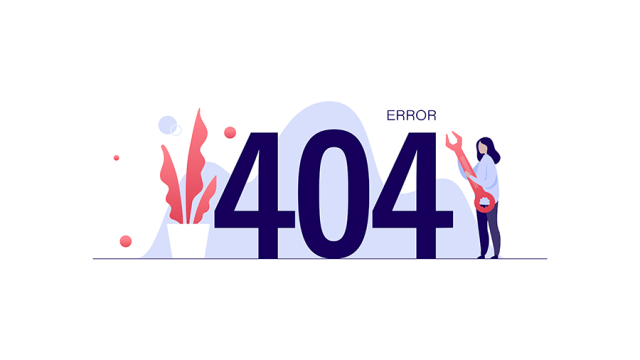Introduction
On January 25th, 2025, the Trump administration issued an executive order titled "Ending Radical and Wasteful Government DEI Programs and Preferencing," aiming to dismantle diversity, equity, and inclusion (DEI) initiatives within federal agencies. This order has led to the removal of critical public health data from federal websites, including datasets from the Centers for Disease Control and Prevention (CDC) such as the Behavioral Risk Factor Surveillance System, Youth Risk Behavior Surveillance System, and the Social Vulnerability Index. These actions will have significant implications for all efforts to protect the health of Americans, including medical care, policy development, and public health research.
Methodologic Challenges
The recent executive order's mandate to eliminate DEI-related content has led to the removal of essential datasets and health guidelines from federal websites. DEI-related data may include both quantitative and qualitative information collected from communities to evaluate and address inequities related to diversity, equity, and inclusion across systems and institutions. Some key components of DEI-related data may include demographic and health data (e.g., race, ethnicity, sexual orientation, disability status, immigration status, HIV monitoring, and adolescent health) and other metrics to understand policy impact on inclusivity and discriminatory experiences (e.g., community pollution levels, poverty level, and education).
This data purge hinders clinicians’ and researchers' ability to care for patients, provide accurate, evidence-based information to patients and the public, understand why some groups have systematically worse health than others, and develop informed interventions. These changes impede progress toward health and equal opportunities for all people to live healthy lives. All Americans will potentially suffer from these changes, but individuals from some communities will bear disproportionate harm from these changes, including Indigenous communities. The absence of comprehensive data exacerbates challenges in understanding and addressing the unique health needs of diverse populations. Moreover, the potential data deletions risk erasing decades of research that have provided evidence for policy solutions and health interventions for structurally and historically marginalized groups.
The removal of accessibility, gender, and DEI-related data will bias study results, as the lack of data on specific populations distorts findings and contributes to misinformed policy decisions that fail to address systemic inequities. Furthermore, it creates a chilling effect on research and public health initiatives. Researchers may become hesitant to pursue studies involving said topics, fearing political repercussions or loss of funding. This environment stifles innovation and discourages the exploration of critical issues affecting our communities.
The deletion of data also poses significant challenges for documentation and data collection. The removal of datasets related to gender, DEI, and accessibility from the CDC and other federal websites affects various vital information sources, potentially erasing essential demographic insights crucial for public health efforts. This loss of data undermines the ability to appropriately address health disparities across communities, affecting disease tracking, intervention development, and funding allocations. Additionally, funding cuts and policy changes ended training resources designed to eliminate economic, social, geographic, and cultural barriers that prevent promising early career scientists from pursuing research careers. Removing those supports will further exacerbate disparities in academic and professional opportunities and over the long run, health and well-being.
The absence of data for targeted groups often translates into the absence of programs and interventions. For example, when documentation status is not accounted for in research, policies fail to address the needs of immigrant populations, leading to exclusion from essential health and social services. Similarly, the elimination of accessibility, gender, and DEI-related data prevents the development of targeted programs that may address racial and health disparities. From 1900 to 1990, the United States clocked an extraordinary and almost uninterrupted increase in life expectancy. This progress slowed and then reversed in recent decades, leading to declines in life expectancy in the United States, especially in comparison to other high income countries. The elimination of research targeted at addressing racial and social disparities in health will accelerate the health declines of recent years.
Ways Forward
Despite these challenges, scientists and advocates are actively working to archive federal data and associated documentation to preserve critical datasets for future research. Efforts are being made to safeguard essential public health data before they are potentially permanently lost. While data, programs, and funding sources may seem scarce, the research community and advocacy groups must remain in alliance to continue progress toward health and racial equity. By preserving data and pushing for accountability, researchers and policymakers can work together to uphold scientific integrity and equitable research and policy development.
The full impact of these executive actions remains uncertain, yet history has shown that such policies often contribute to a broader system of co-occurring policies that compound inequities. Understanding these effects will require both quantitative policy evaluations and qualitative investigations. At E4A, we remain steadfast in supporting our grantees in conducting research to assess health outcomes and address key determinants of health, with a particular focus on actionable strategies towards health equity. Be on the lookout for an upcoming E4A Call for Proposals in the spring of 2025, which will provide funding to support research that advances equity-driven solutions and fosters meaningful community leadership.
Resources
Data Archive Hubs for Federal Data
We strongly advise downloading any publicly available data and related documentation from federally funded or conducted research as soon as possible, given the uncertainty surrounding future data accessibility. The following are few archive hubs in which scientists and advocates archived federal data and associated documentation for future research.
- Public Environmental Data Project
- Archive of all CDC datasets before January 28, 2025
- Harvard Dataverse
- PolicyMap (costs associated)
Legal, Digital, and Advocacy
US National Academy of Sciences Resource: List of legal, digital, and advocacy resources to support researchers and scholars in preventing and responding to targeted attacks and online harassment
